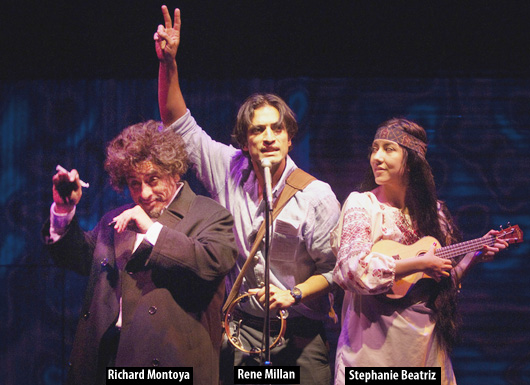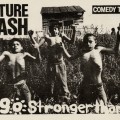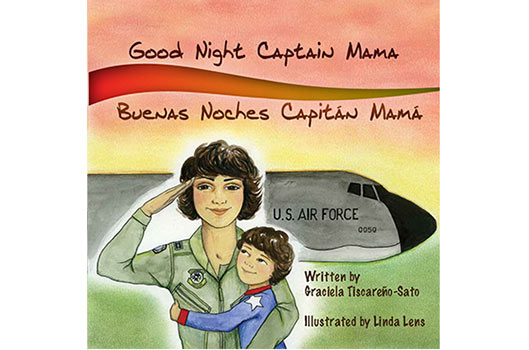
I feel extremely fortunate to have been born in Southern California in the early 1970s. The hairstyles alone were unforgettable—my Tia Maria had a red afro! The children at my school not only received a bilingual education, but our teachers encouraged us to learn as much as we could about our relationship to American History. Sometimes I wonder if my kids will believe me when I tell them how, every morning, my classmates and I would stand up and say the Pledge of Allegiance and then we would all sing De Colores. In Spanish. In a public school.
Culture Clash was going strong during my senior year of high school. I have vivid memories of Culture Clash’s emergence from the “teatro campesino” tradition, exploding onto the art and theater scene in the mid-80s. If you are unfamiliar with Culture Clash (because you’re too young or weren’t a drama geek like me) then you should find them on YouTube NOW and laugh until pan dulce comes out of your nose before reading the rest of this post. I’m not kidding, I’ll wait!
As a teenager, what struck me most about their comedy was how they seemed to go after EVERYBODY—including themselves. And they were always so freaking funny. Founders Richard Montoya, Ric Salinas and Herbert Siguenza have remained relevant for almost 30 years now, with a point of view that manages to be topical and timeless at the same time. Their most recent project, “American Night”, does not disappoint.
Read Related: Interview with CNNE’s Mercedes Soler
![american-night-lg[1]](https://mamiverse.com/wp-content/uploads/2012/02/american-night-lg1.jpeg) “American Night: The Ballad of Juan Jose” is about a policeman in Mexico who refuses to become corrupt, opting instead to cross the border and pursue becoming a legal US citizen. The play takes place the night before Juan Jose is going to take his citizenship test. While feverishly cramming for the exam, he falls asleep and finds himself living episodes of American History—some of which are in his textbook (Lewis and Clark) and some of which are not (the internment camp at Manzanar). I saw the show last week and was laughing so hard that I missed a few of the jokes. After it was over everyone in the audience was still chuckling, but they were also talking about the historical events recounted in the show and what they have to teach us about America today.
“American Night: The Ballad of Juan Jose” is about a policeman in Mexico who refuses to become corrupt, opting instead to cross the border and pursue becoming a legal US citizen. The play takes place the night before Juan Jose is going to take his citizenship test. While feverishly cramming for the exam, he falls asleep and finds himself living episodes of American History—some of which are in his textbook (Lewis and Clark) and some of which are not (the internment camp at Manzanar). I saw the show last week and was laughing so hard that I missed a few of the jokes. After it was over everyone in the audience was still chuckling, but they were also talking about the historical events recounted in the show and what they have to teach us about America today.
Recently, I spoke with the show’s star, Rene Millan, who plays Juan Jose. How did I, a lowly bloguera, manage to land such a hot interview? Perhaps it’s because Rene is an old friend of mine from high school and, well, let’s just say those embarrassing yearbook photos are sitting awfully close to my scanner.
Porras: Hi Rene! You are wonderful in this play. I know you love U.S. History so I have to ask—have you ever had a weird “history dream” like the one Juan Jose has in the play?
Millan: I have had weird history dreams. I was a history major in college at the University of Redlands, and I found myself dreaming of whatever era of history I was studying. If I was studying World War II, my dreams were all war related.
Porras: You originated the role in Oregon. Now you’re in San Diego and next the show goes to Los Angeles. Culture Clash is famous for adapting their material for the performance location. What’s your favorite joke in the show now and what’s your favorite joke that was cut before you came to San Diego?
Millen: The show starts with with a pre-show announcement for the audience to turn off their phones and if they don’t they will be deported to a particular city. In Oregon, the announcement said that people would be deported to “Redding, California!” Here in San Diego, it was changed to “Chula Vista, California!” Makes me laugh every time.
Porras: What moments in the show most resonated with your personal experience growing up as a Mexican-American in a bordertown?
Millen: The moments in the show that most resonate with me are the moments when Juan Jose isn’t sure where he belongs. He doesn’t feel he belongs in Mexico, and he’s being vilified in the United States. Where does he belong? Juan Jose is living in the “grey area.” I’m familiar with this area because there have been moments in my life when I didn’t know where I was welcome.

Porras: Have you had many students come and see the show? If so, what has their reaction been?
Millen: At the Oregon Shakespeare Festival we had many school groups come see our show and their reaction to the show was incredible. They were always very vocal during the show and speaking to them after the show, they were always so complimentary. Many kids spoke about how it helped them to understand the immigration debate and American History in a new light. It always feels great to be a part of a show that makes such an impact.
Porras: Culture Clash’s complete published works are on the list of “banned” books in the Tucson Unified School District. How do you feel about the fact that your show is ostensibly off-limits to an entire city of American children?
Millen: The fact that Culture Clash’s plays are banned in the Tucson Unified School District is a shame. It’s the product of fear. Fear makes us do irrational things. The Tucson Unified School District deciding to cut ethnic studies in their schools is basically trying to teach that immigration in the United States is irrelevant. It’s promoting to deny the existence of other cultures in this country. Yes, if we’re born here, we’re Americans. But the beauty of America is that we all have ethnic ties to different countries. That’s just a fact and the TUSD is trying to deny this basic understanding.
Porras: Why do Chicanos love Morrissey? (this is a question pondered by Juan Jose during his dream)
Millen: Why DO Chicanos love Morrissey?!!!! Are we a depressed group of people looking to an empathetic poet for comfort? I really don’t know. Juan Jose: “It’s a conundrum.”
Thanks, Rene!
If you are fortunate enough to live somewhere close to where “American Night” is playing, go see it! If not, I hope you’ll pick up a copy of Culture Clash: Life, Death and Revolutionary Comedy. I am so inspired by the people who are calling attention to what is going on in Tucson, including a librotraficante, who is “smuggling” books into Arizona you can read about right here at Mamiverse. You can also check out BanningHistory.blogspot.com to learn more, sign the petition to Tucson Superintendent John Pedicone or even submit a video of yourself reading from your favorite “banned” book. Who knows? Maybe your reading from a Culture Clash play will make the Tucson Unified School board laugh hard enough to do the right thing.
Wishing you love with extra cheese.
Nacho Mama












